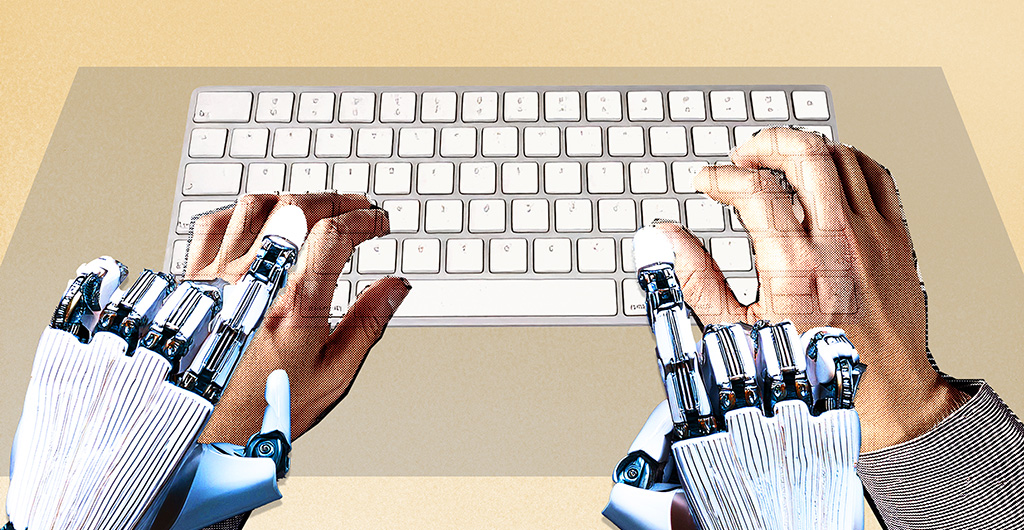You start typing “How do I…” into Google, and before you finish the thought, autocomplete suggests the exact phrase you were going to ask, word by word.
You click it without a second thought: it’s faster, and it feels normal that the search engine seems to read your mind.
What looked like assistance was in fact a combination of large-scale behavioral modeling and personalization based on data points like geolocation and search history. You thought you were searching; the algorithm was nudging.
Micro-moments like this occur countless times every day across multiple devices. We adopted digital tools for the benefits they promise: less decision fatigue, liberation from mundane tasks, seamless efficiency.
But is autonomy the price we are paying for such convenience?
In this article, we explore how small conveniences add up to a profound shift in human agency, what’s at stake if we stop noticing, and how to counterbalance the trend.
Key takeaways
- Everyday automation saves time but can erode autonomy in invisible ways.
- AI differs from past technologies by stepping into the space of judgment, authorship, and creativity.
- Overreliance risks “distributed cognitive atrophy,” weakening critical thinking and originality.
- Deliberate delegation to AI, not blind adoption, helps preserve agency.
- Preserved judgment and trust in decision-making may become key competitive advantages.
Autonomy: how it started and how it’s going
Choosing used to be real work.
Buying a product meant comparing prices in-store, asking friends for recommendations, or flipping through reviews in magazines. Finding your way around a city required a map, patience, (hopefully) a sense of direction, and openness to the possibility of a few wrong turns.
Decision-making was high friction: gathering information, weighing alternatives, committing, and living with the outcome. Autonomy wasn’t effortless, but that was the point. Each choice became a data point for the next, and every mistake sharpened future judgment.
This is known as deliberative thinking: slow, effortful thought that improves judgment and builds intuition. Research shows that when people invest effort in decisions, they feel stronger ownership of the outcome. The more mental work you put in, the more the resulting choice feels like your own.
When the question goes from “Was this made by AI?” to “Can I trust who shared it?” trust becomes the most critical brand asset.
The shift from tools to advisors
Before smartphones and algorithmic curation became our daily default, digital tools amplified intent. A word processor typed the words you chose. A calculator added 200 to 34 and showed 234. Tools followed instructions — your instructions.
The shift, which can feel like a lifetime ago, is actually fairly recent. A few milestones:
- Google made autocomplete default in 2008
- Spotify launched Discover Weekly in 2015
- Gmail’s Smart Compose debuted in 2018
Helpful, efficient, and often delightful. But also nudging us from “help me decide” toward “decide for me.”
Over time, what began as assistance compounded into a deeper change: digitalization shifted from tools that accelerated our choices or made low-stakes ones on our behalf, with recommendations and autocomplete to systems that replaced them altogether.
How AI automation differs from previous technological shifts
AI is not just faster or larger in scale than past technologies. It extends into realms once considered quintessentially human: authorship, judgment, creativity.
By entering the spaces where decisions and ideas are formed, AI reshapes not only what we produce, but also how we think — a shift marked by speed, invisibility, and cascading delegation.
Speed and invisibility
Earlier waves of automation were more visible. Amazon’s 1-Click checkout sped up shopping, but you knew you had clicked and selected things for your cart or completed a form. Uber automated routes, but you still accepted the ride. Netflix recommended shows, but you could ignore them.
Automation’s role was clear, as was yours. But AI’s role is now hidden. Automation and its resulting decisions happen at cognitive speed, often in the background.
A MIT Media Lab study found 83 percent of users could not accurately quote from their own AI-assisted essays, and “presented a fragmented and conflicted sense of authorship,” pointing to a loss of ownership and memory.
The boundary between human input and machine judgment blurs. When you don’t see the decision being made, you don’t notice you’ve stopped making it.
The delegation cascade
Organizational reliance on generative AI continues to skyrocket. McKinsey’s “State of AI 2024” found that 65 percent of organizations regularly use generative AI — nearly double the rate ten months earlier. Yet only 20 percent track KPIs and a scant 23 percent have risk governance structures addressing AI adoption.
Nearly half report negative consequences: inaccuracies, intellectual property issues, or compliance violations. The pitfalls of overreliance are already visible.
On the human side, “distributed cognitive atrophy” describes the weakening of skills such as abstraction, memory, and self-trust when AI replaces high-level thinking. The more humans outsource critical decision-making, the more we risk being able to do it (or generally think deeply.)
A 2025 Microsoft Research survey found that higher confidence in AI tools correlated with reduced critical thinking effort. Work was streamlined, but at the cost of depth and engagement with it.
This is not a call for techno-pessimism, but for awareness of a delegation cascade in which AI quickly shifts from assistant to advisor to replacement.
What we risk losing when thinking becomes optional
When technology makes critical thinking optional, what do humans lose? What are the results of weakening or abandoning the — often necessarily slow and messy — thought process, our creativity, and our ability to make well-reasoned decisions?
The power of deliberation
A recent study by the Center for Strategic Corporate Foresight and Sustainability found that frequent AI tool use correlates with weaker critical thinking, particularly among 17–25-year-olds. Digital natives showed greater cognitive offloading — skipping deep reflection and analysis.
“This suggests that digital natives, who have grown up with AI-integrated technologies, might be more prone to cognitive offloading than older generations,” said Michael Gerlich, author of the study.
However, the level of education seemed to counter those effects, and participants with formal education were able to keep critical thinking skills sharp, even when using AI frequently.
The homogenization of human expression
While online discourse often praises how AI can unlock creative potential, there are already findings that seem to contradict this. Research on computer-human interaction at Cornell University reveals that exposure to GenAI examples can actually reduce creative thinking.
Exposing participants to AI-generated ideas during ideation resulted in fewer, less varied outputs, suggesting what researchers describe as design fixation. This means that AI suggestions can narrow, rather than expand, human creative exploration.
Decision-making
In one education study, 83 percent of students expressed worry that reliance on AI weakens their ability to think independently and make reasonable decisions. MIT Media Lab further found that students using ChatGPT underperformed on neural and behavioral metrics compared with those who wrote essays unaided.
As noted in the European Research Studies Journal study of students referenced above:
Students value the importance of critically evaluating their own and others’ beliefs, acknowledging that AI can support this process but cannot replace traditional teaching methods, which remain essential for fostering autonomous thinking.
The competitive advantage of preserved judgment
In the rush to adopt generative AI, the real advantage lies in combining machine speed with human discernment.
MIT Sloan Management Review found that organizations integrating AI into learning — not just execution — are 1.6–2.2 times more likely to navigate uncertainty across technology, regulation, and talent.
Regulation is aligning: the EU AI Act requires human oversight for high-risk systems, emphasizing explainability and intervention as operating requirements.
AI is democratizing data analysis, but the most powerful differentiation remains human storytelling.
Making delegation deliberate
Unchecked outsourcing hollows both organizational strategy and capability. But deliberate delegation makes automation a partner rather than a replacement.
Foster intentional collaboration with AI by asking these questions:
- Does this decision shape strategy, or merely execute it? Irreversible or high-impact strategic choices are best kept to humans, like how to position a brand, where to allocate capital, and what values to uphold.
- What cognitive skills are being exercised? Tasks that build judgment, negotiation, or ethical reasoning should not be entirely offloaded.
- How visible is the process? If a decision can’t be explained or challenged, it shouldn’t be fully automated.
The companies that stay ahead will be the ones that use AI for leverage while preserving the human judgment that compounds into brand trust, resilience, and long-term advantage.
Looking ahead
We began with Google’s autocomplete — a nudge so seamless it barely registers. But it’s those invisible moments that chip away at autonomy.
The future of digitalization need not force a trade-off between convenience and control. By choosing deliberately what to delegate, and protecting spaces where human judgment matters most, we can make technology an amplifier of agency rather than its replacement.

